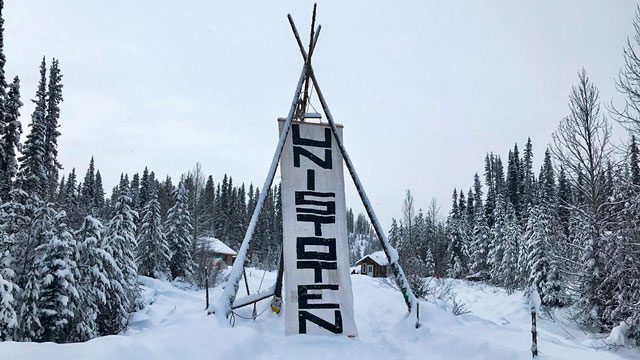
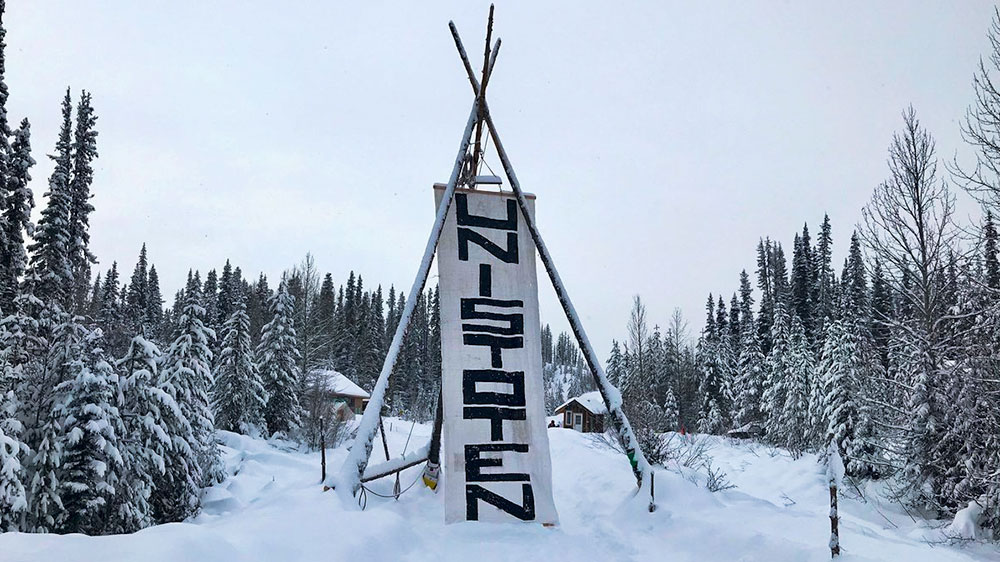 Laurie Hamelin and Tamara PimentelAPTN NewsThe battle over the CGL pipeline in British Columbia both on social media and in the press is dividing the Wet’suwet’en Nation some members say.The two opposing sides have been in a very public dispute over Coastal GasLink’s (CGL) 670 km pipeline that will carry fracked natural gas from Dawson Creek, B.C., in the northeast, to Kitimat on the coast.Hurtful messages on social media and intimidation within the community has driven the wedge between the two sides even further.”The in-fighting has been going on for some time now,” said Troy Young.”We’ve got a real divide in the community. It’s sad, I’m fine with people being anti-pipeline, but I have the right to carry out what I want to do.”Young is a Wet’suwet’en member born in Smithers, B.C. now living on Vancouver Island.The 48 year old father of three said in a phone interview with APTN News that misinformed people and organizations in Canada and around the world are fueling the fire.”People are saying the project doesn’t have our approval,” said Young.”No one can say this pipeline doesn’t have our backing. We were informed and people want it.”Former elected council member from Witset First Nation, Gary Naziel of the Laksilyu Clan, was in leadership when the community signed a benefits agreement with CGL.Naziel is a hereditary wing chief (sub chief) and works for Kyha Resources Inc. He said the majority of the community members in Witset voted in favor of the pipeline.”Everybody voted, everybody had a say,” said Naziel at his home in Witset. “The final decision was up to the council.”
Laurie Hamelin and Tamara PimentelAPTN NewsThe battle over the CGL pipeline in British Columbia both on social media and in the press is dividing the Wet’suwet’en Nation some members say.The two opposing sides have been in a very public dispute over Coastal GasLink’s (CGL) 670 km pipeline that will carry fracked natural gas from Dawson Creek, B.C., in the northeast, to Kitimat on the coast.Hurtful messages on social media and intimidation within the community has driven the wedge between the two sides even further.”The in-fighting has been going on for some time now,” said Troy Young.”We’ve got a real divide in the community. It’s sad, I’m fine with people being anti-pipeline, but I have the right to carry out what I want to do.”Young is a Wet’suwet’en member born in Smithers, B.C. now living on Vancouver Island.The 48 year old father of three said in a phone interview with APTN News that misinformed people and organizations in Canada and around the world are fueling the fire.”People are saying the project doesn’t have our approval,” said Young.”No one can say this pipeline doesn’t have our backing. We were informed and people want it.”Former elected council member from Witset First Nation, Gary Naziel of the Laksilyu Clan, was in leadership when the community signed a benefits agreement with CGL.Naziel is a hereditary wing chief (sub chief) and works for Kyha Resources Inc. He said the majority of the community members in Witset voted in favor of the pipeline.”Everybody voted, everybody had a say,” said Naziel at his home in Witset. “The final decision was up to the council.”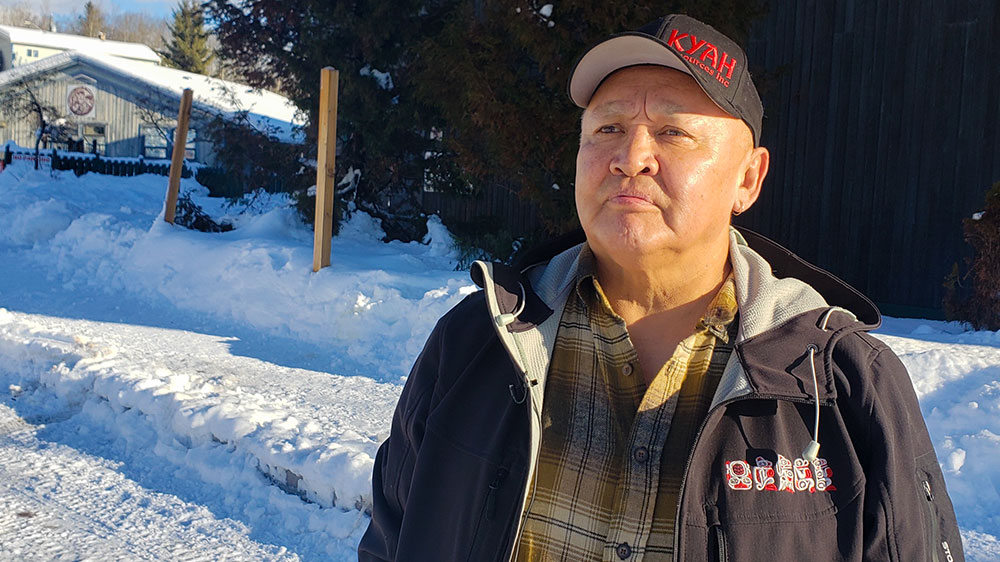 (‘Our laws are not being followed and it’s disheartening to see that,’ says Gary Naziel of the Laksilyu Clan, in Witset First Nation near Smithers B.C. Photo: Tamara Pimentel/APTN)Witset is the largest Band within Wet’suwet’en Nation with approximately 660 who live on-reserve and 1,130 who live off-reserve.It’s located just over an hour north of the Gidim’ten and Unist’ot’en camps where an unknown number of people who say they’re asserting their rights over the land are hold-up.”When we signed on, the elected council, half of the members were hereditary chiefs so the communication that’s not happening is not consulting with other hereditary chiefs,” said Naziel.The world weighs inIn early January, the United Nations Committee on the Elimination of Racial Discrimination and the B.C. Human Rights Commission urged Canada to stop construction on CGL until the project has Indigenous consent from impacted communities.But on January 16, committee chair Noureddine Amir told media that he was unaware that CGL had broad Indigenous backing.And when asked about gathering information, Amir admitted that the committee’s role does not include investigations.In an open letter, Karen Ogen-Toews said she was shocked to learn the committee’s decision was made without research.Ogen-Toews is the CEO of the First Nations LNG Alliance and the former elected chief of Wet’suwet’en First Nation.”The UN Committee’s statement and recommendations should simply and immediately be withdrawn, along with an apology to the 20 Nations,” said Ogen-Toews, in the letter.”The committee should have been aware that the 20 First Nations participated extensively during five years of consultation on the pipeline, and have successfully negotiated agreements with Coastal GasLink.“This is on public record.”
(‘Our laws are not being followed and it’s disheartening to see that,’ says Gary Naziel of the Laksilyu Clan, in Witset First Nation near Smithers B.C. Photo: Tamara Pimentel/APTN)Witset is the largest Band within Wet’suwet’en Nation with approximately 660 who live on-reserve and 1,130 who live off-reserve.It’s located just over an hour north of the Gidim’ten and Unist’ot’en camps where an unknown number of people who say they’re asserting their rights over the land are hold-up.”When we signed on, the elected council, half of the members were hereditary chiefs so the communication that’s not happening is not consulting with other hereditary chiefs,” said Naziel.The world weighs inIn early January, the United Nations Committee on the Elimination of Racial Discrimination and the B.C. Human Rights Commission urged Canada to stop construction on CGL until the project has Indigenous consent from impacted communities.But on January 16, committee chair Noureddine Amir told media that he was unaware that CGL had broad Indigenous backing.And when asked about gathering information, Amir admitted that the committee’s role does not include investigations.In an open letter, Karen Ogen-Toews said she was shocked to learn the committee’s decision was made without research.Ogen-Toews is the CEO of the First Nations LNG Alliance and the former elected chief of Wet’suwet’en First Nation.”The UN Committee’s statement and recommendations should simply and immediately be withdrawn, along with an apology to the 20 Nations,” said Ogen-Toews, in the letter.”The committee should have been aware that the 20 First Nations participated extensively during five years of consultation on the pipeline, and have successfully negotiated agreements with Coastal GasLink.“This is on public record.”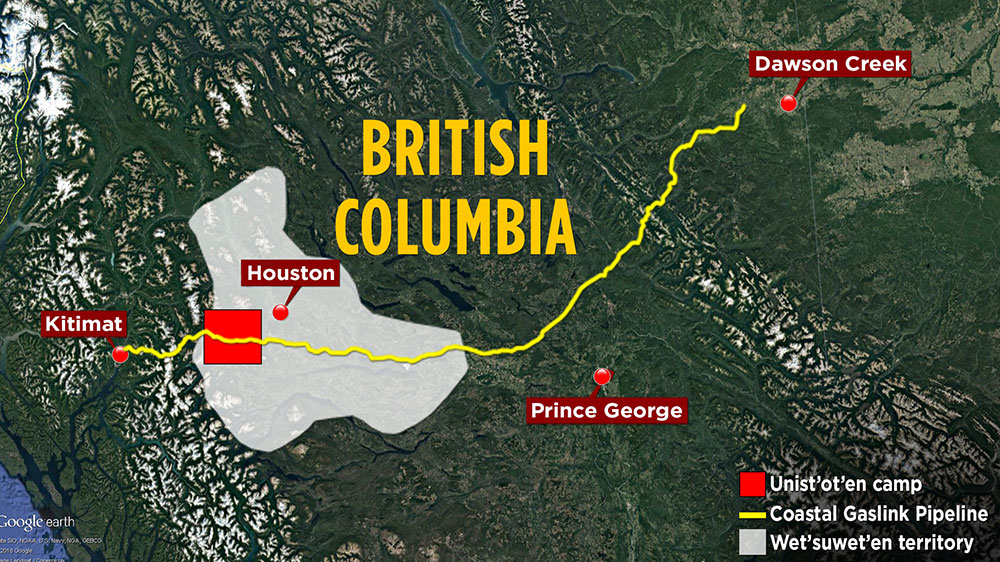 Ogen-Toews held the title of elected chief of Wet’suwet’en First Nation from 2010 to 2016 and was in office for consultations and signing of agreements.In a phone interview with APTN recorded in November 2018, Ogen-Toews described the consultation process, the roles of hereditary and elected leadership, and the problems that arose among the nation.“As far as I’m concerned, the hereditary chiefs look after their clan members and the land, the elected chiefs look after the members and everything under the sun with very few resources to do it,” said Ogen-Toews in the interview.Once the fracked natural gas travels down the $6.6 billion pipeline it will be liquefied and shipped to markets in Asia.Five of the six bands in Wet’suwet’en Nation signed on with the project, including 15 other First Nations on the route.Along with revenue from Impact Benefits Agreements and Provincial Pipeline Agreements, Indigenous businesses will benefit from $620 million in contract work for the project’s right-of-way clearing, medical, security and camp management needs.There is another $400 million in additional contract and employment opportunities for Indigenous and local B.C. communities during pipeline construction.Young is excited about the pipeline project.He’s the general manager and director of Kyah Resources Inc., a company owned by Witset First Nation.Kyah Resources has a contract with CGL to provide work on the line – clearing activities, road building, maintenance and site prep.Young said the pipeline will help lift Wet’suwet’en Nation from poverty.”From my perspective this is a good opportunity because this is the first time there has been meaningful involvement with First Nations,” said Young.”Look at all the projects that have taken place in the past, that have been pushed through regardless of what the local First Nations wanted.“This pipeline can be a catalyst for great things, to get us out of being at the bottom of the rung.”The Hereditary Chiefs
Ogen-Toews held the title of elected chief of Wet’suwet’en First Nation from 2010 to 2016 and was in office for consultations and signing of agreements.In a phone interview with APTN recorded in November 2018, Ogen-Toews described the consultation process, the roles of hereditary and elected leadership, and the problems that arose among the nation.“As far as I’m concerned, the hereditary chiefs look after their clan members and the land, the elected chiefs look after the members and everything under the sun with very few resources to do it,” said Ogen-Toews in the interview.Once the fracked natural gas travels down the $6.6 billion pipeline it will be liquefied and shipped to markets in Asia.Five of the six bands in Wet’suwet’en Nation signed on with the project, including 15 other First Nations on the route.Along with revenue from Impact Benefits Agreements and Provincial Pipeline Agreements, Indigenous businesses will benefit from $620 million in contract work for the project’s right-of-way clearing, medical, security and camp management needs.There is another $400 million in additional contract and employment opportunities for Indigenous and local B.C. communities during pipeline construction.Young is excited about the pipeline project.He’s the general manager and director of Kyah Resources Inc., a company owned by Witset First Nation.Kyah Resources has a contract with CGL to provide work on the line – clearing activities, road building, maintenance and site prep.Young said the pipeline will help lift Wet’suwet’en Nation from poverty.”From my perspective this is a good opportunity because this is the first time there has been meaningful involvement with First Nations,” said Young.”Look at all the projects that have taken place in the past, that have been pushed through regardless of what the local First Nations wanted.“This pipeline can be a catalyst for great things, to get us out of being at the bottom of the rung.”The Hereditary Chiefs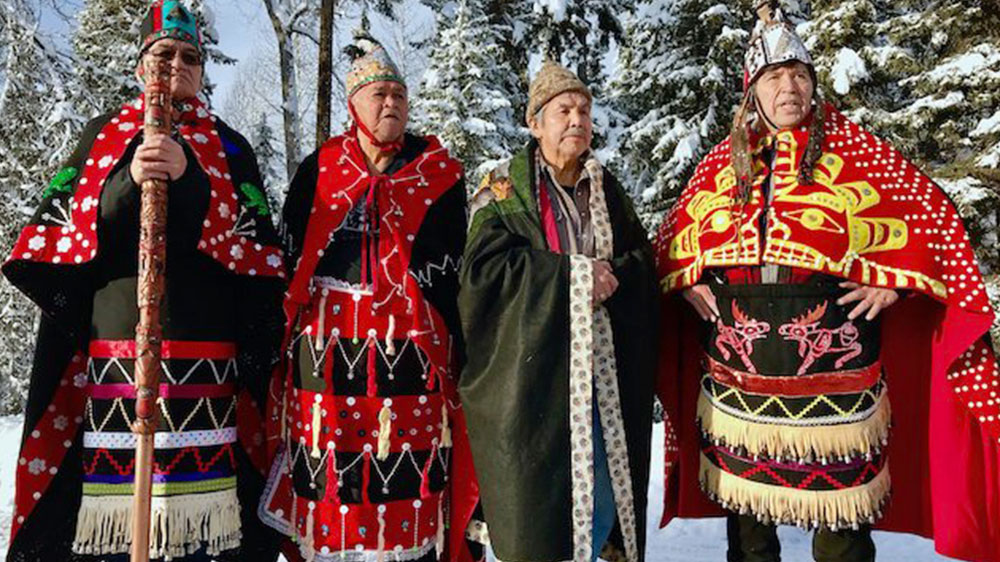 (Four of the five Wet’suwet’en hereditary chiefs. Na’Moks is pictured here on the left)But the controversial pipeline doesn’t have approval from Wet’suwet’en hereditary chiefs representing the five clans.They are adamant that ancestral laws give them control over their unceded territory, not elected leadership.“The bands only have jurisdiction within the band boundaries,” said Hereditary Chief Na’Moks of the Tsayu Clan.”Our law says this project can’t happen on the territory.”The Indian Act forced the system of elected chief and councils on reserve lands with the goal of taking down ancestral political structures, but the Wet’suwet’en Nation’s hereditary system has survived for many thousands of years.Na’Moks said it’s the hereditary chiefs’ duty to protect the territory.”Their route is going along rivers, it will go over rivers and even in some instances it will go under,” said Na’Moks.”190 kilometres of the proposed route will run through our territory. It threatens our water, our salmon, and our rights, our title, our jurisdiction.”The Delgamuukw-Gisdaywa CaseIn 1997, hereditary leaders of the Wet’suwet’en and Gitxsan Nations were the litigants in the land mark Supreme Court of Canada (SCC) case Delgamuukw-Gisdaywa, which transformed how Indigenous land title is considered.According to hereditary chiefs, the case proves they have never ceded nor surrendered title to their traditional territory.Naziel said elected and hereditary leadership haven’t followed the Wet’suwet’en way of making decisions together and that important traditional conversations historically happened in their feast hall.”It’s been difficult because in the past 10 to 15 years I’ve been seeing lots of changes in our feast hall, our laws are not being followed and it’s disheartening to see that,” he said.”It’s sad to see that your feast system is going downhill and you’re trying to fix it, but there’s nobody to turn to.”Hereditary Chief Na’Moks is Young’s cousin. Their grandmother held the name Na’Moks.Young said the issue of traditional law versus elected leadership isn’t simple.”I respect our hereditary chiefs because they carry our culture and they have a very significant place in our culture, but I don’t think that they are the ones that should hold all the governing power,” said Young.”I don’t think it’s a strong governance system with the way things have changed. It’s an elected government every two years, if you told the communities they aren’t voting anymore they won’t accept that nowadays.“These guys are trying to turn back the clock and say all these elections don’t matter.”
(Four of the five Wet’suwet’en hereditary chiefs. Na’Moks is pictured here on the left)But the controversial pipeline doesn’t have approval from Wet’suwet’en hereditary chiefs representing the five clans.They are adamant that ancestral laws give them control over their unceded territory, not elected leadership.“The bands only have jurisdiction within the band boundaries,” said Hereditary Chief Na’Moks of the Tsayu Clan.”Our law says this project can’t happen on the territory.”The Indian Act forced the system of elected chief and councils on reserve lands with the goal of taking down ancestral political structures, but the Wet’suwet’en Nation’s hereditary system has survived for many thousands of years.Na’Moks said it’s the hereditary chiefs’ duty to protect the territory.”Their route is going along rivers, it will go over rivers and even in some instances it will go under,” said Na’Moks.”190 kilometres of the proposed route will run through our territory. It threatens our water, our salmon, and our rights, our title, our jurisdiction.”The Delgamuukw-Gisdaywa CaseIn 1997, hereditary leaders of the Wet’suwet’en and Gitxsan Nations were the litigants in the land mark Supreme Court of Canada (SCC) case Delgamuukw-Gisdaywa, which transformed how Indigenous land title is considered.According to hereditary chiefs, the case proves they have never ceded nor surrendered title to their traditional territory.Naziel said elected and hereditary leadership haven’t followed the Wet’suwet’en way of making decisions together and that important traditional conversations historically happened in their feast hall.”It’s been difficult because in the past 10 to 15 years I’ve been seeing lots of changes in our feast hall, our laws are not being followed and it’s disheartening to see that,” he said.”It’s sad to see that your feast system is going downhill and you’re trying to fix it, but there’s nobody to turn to.”Hereditary Chief Na’Moks is Young’s cousin. Their grandmother held the name Na’Moks.Young said the issue of traditional law versus elected leadership isn’t simple.”I respect our hereditary chiefs because they carry our culture and they have a very significant place in our culture, but I don’t think that they are the ones that should hold all the governing power,” said Young.”I don’t think it’s a strong governance system with the way things have changed. It’s an elected government every two years, if you told the communities they aren’t voting anymore they won’t accept that nowadays.“These guys are trying to turn back the clock and say all these elections don’t matter.”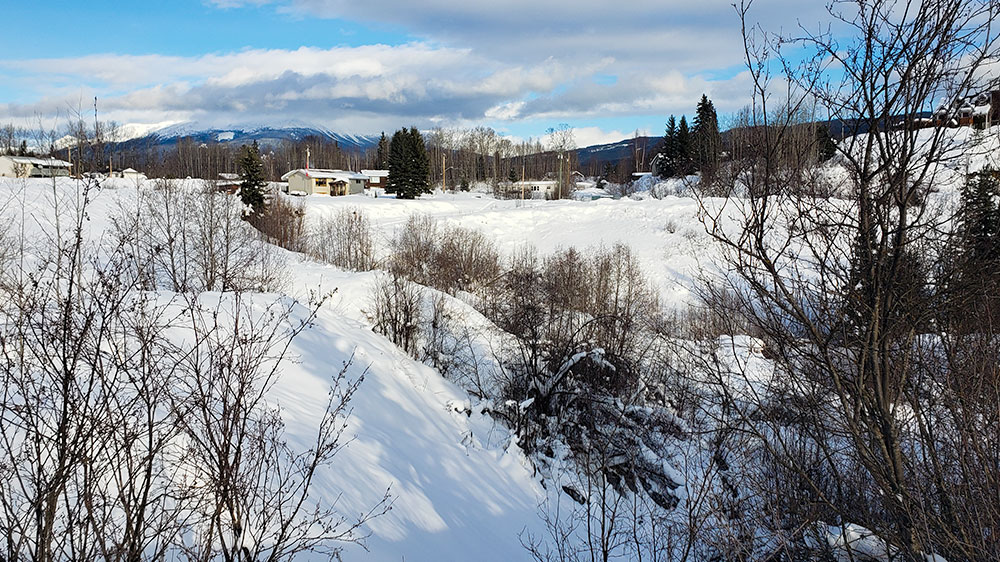 (Witset First Nation. Photo: Tamara Pimentel/APTN)Young points out that Witset First Nation affirmed their support of the CGL pipeline in the band’s election last summer.”I think it’s a telling sign that Witset continues to elect councils that are for the project,” said Young.”They’ve had opportunities to elect in an anti-pipeline government, but didn’t and that tells the sentiment of the people in the community.Pretty much all the communities up and down the line continue to vote in pro-pipeline councils.”Last August, two of Wet’suweten’s strongest pipeline opponents ran for chief of Witset.Freda Huson, the spokesperson and full time resident of the Unist’ot’en Healing Centre and her former partner, Warner Naziel, who now holds the name Hereditary Chief Smogelgem of the Laksamshu Clan.That hereditary name, Smogelgem, was stripped from Gloria George by hereditary chiefs for supporting the pipeline.”Freda and Warner both ran for chief and council, but they didn’t win,” said Young.”They don’t have the support of the people to stop this thing.”On Jan. 4, in response to the B.C. Supreme Court granting CGL an interlocutory injunction, the hereditary chiefs asserted their inherent jurisdiction over the territory by issuing the pipeline company an eviction notice.The hereditary leaders ordered personnel to leave the area and the company complied.Read More: Hereditary chiefs issue eviction notice to pipeline company in Wet’suwet’en territoryHereditary chiefs of the Wet’suwet’en Nation in B.C. says LNG pipeline doesn’t have unanimous consent“We will never change our mind on this project, we are the law of the land, we are following our law,” said Na’Moks.APTN has been on the ground in the territory for over a week.Gathering interviews from both sides of the dispute has been very difficult.While rallies across the country in support of the protest camps steal the spotlight on social media, elected leadership in support of the project have been silent.”That’s the way we were taught by our elders is to remain silent until you come to a decision or compromise,” Naziel said.”Our elders never used to say ‘it’s my way or the highway’ there was no right or wrong, they always came to a compromise and moved on. But nowadays the decision making that’s happening is not the Wet’suwet’en way.”
(Witset First Nation. Photo: Tamara Pimentel/APTN)Young points out that Witset First Nation affirmed their support of the CGL pipeline in the band’s election last summer.”I think it’s a telling sign that Witset continues to elect councils that are for the project,” said Young.”They’ve had opportunities to elect in an anti-pipeline government, but didn’t and that tells the sentiment of the people in the community.Pretty much all the communities up and down the line continue to vote in pro-pipeline councils.”Last August, two of Wet’suweten’s strongest pipeline opponents ran for chief of Witset.Freda Huson, the spokesperson and full time resident of the Unist’ot’en Healing Centre and her former partner, Warner Naziel, who now holds the name Hereditary Chief Smogelgem of the Laksamshu Clan.That hereditary name, Smogelgem, was stripped from Gloria George by hereditary chiefs for supporting the pipeline.”Freda and Warner both ran for chief and council, but they didn’t win,” said Young.”They don’t have the support of the people to stop this thing.”On Jan. 4, in response to the B.C. Supreme Court granting CGL an interlocutory injunction, the hereditary chiefs asserted their inherent jurisdiction over the territory by issuing the pipeline company an eviction notice.The hereditary leaders ordered personnel to leave the area and the company complied.Read More: Hereditary chiefs issue eviction notice to pipeline company in Wet’suwet’en territoryHereditary chiefs of the Wet’suwet’en Nation in B.C. says LNG pipeline doesn’t have unanimous consent“We will never change our mind on this project, we are the law of the land, we are following our law,” said Na’Moks.APTN has been on the ground in the territory for over a week.Gathering interviews from both sides of the dispute has been very difficult.While rallies across the country in support of the protest camps steal the spotlight on social media, elected leadership in support of the project have been silent.”That’s the way we were taught by our elders is to remain silent until you come to a decision or compromise,” Naziel said.”Our elders never used to say ‘it’s my way or the highway’ there was no right or wrong, they always came to a compromise and moved on. But nowadays the decision making that’s happening is not the Wet’suwet’en way.”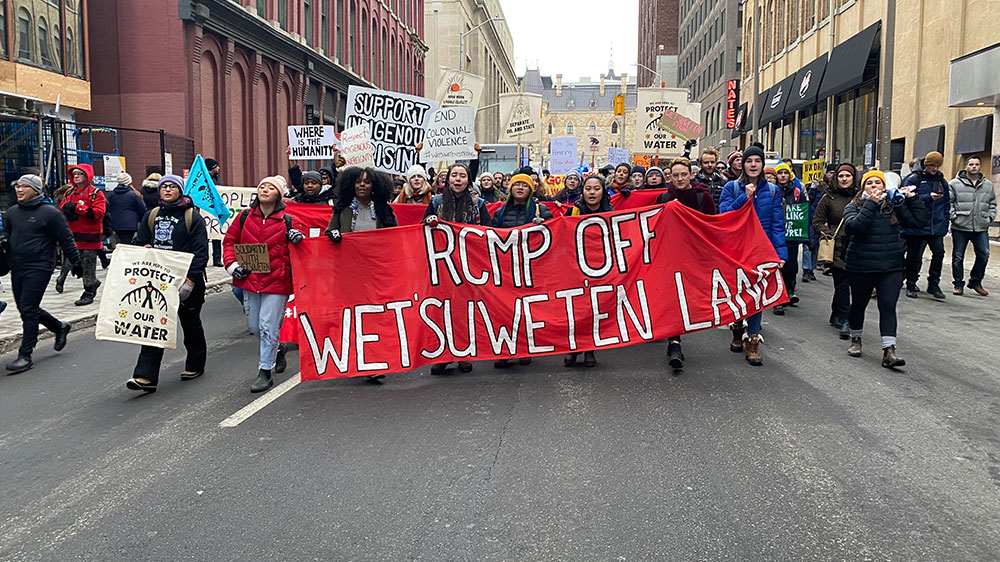 (A march in Ottawa in support of the hereditary Wet’suwet’en chiefs. Photo: Brett Forester/APTN)According to the hereditary chiefs, the pipeline betrays B.C.s commitment to reconciliation and the newly passed UNDRIP legislation and the leaders are now holding up construction in certain areas until an in-person meeting with Premier John Horgan is held.But Young said it’s up to the Wet’suewet’en to work out the conflict.”When the Delgamuukw-Gisdaywa case took place, Wet’suwet’en and Gitxsan were successful because we had our hereditary chiefs in sync with our elected chiefs and everybody had the same concerns,” said Young.”The two [hereditary and elected] have to go hand in hand to be able to carry out true governance and it’s not one over rides the other. Everything now is out of step between the two and they need to come together and decide how they are going to move forward.“The system broke down somewhere and it is going to be hard to mend, but I am hopeful that things do take place to get people back together.”
(A march in Ottawa in support of the hereditary Wet’suwet’en chiefs. Photo: Brett Forester/APTN)According to the hereditary chiefs, the pipeline betrays B.C.s commitment to reconciliation and the newly passed UNDRIP legislation and the leaders are now holding up construction in certain areas until an in-person meeting with Premier John Horgan is held.But Young said it’s up to the Wet’suewet’en to work out the conflict.”When the Delgamuukw-Gisdaywa case took place, Wet’suwet’en and Gitxsan were successful because we had our hereditary chiefs in sync with our elected chiefs and everybody had the same concerns,” said Young.”The two [hereditary and elected] have to go hand in hand to be able to carry out true governance and it’s not one over rides the other. Everything now is out of step between the two and they need to come together and decide how they are going to move forward.“The system broke down somewhere and it is going to be hard to mend, but I am hopeful that things do take place to get people back together.”




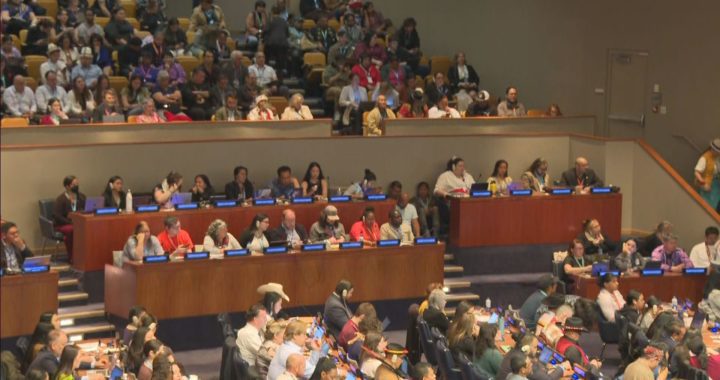
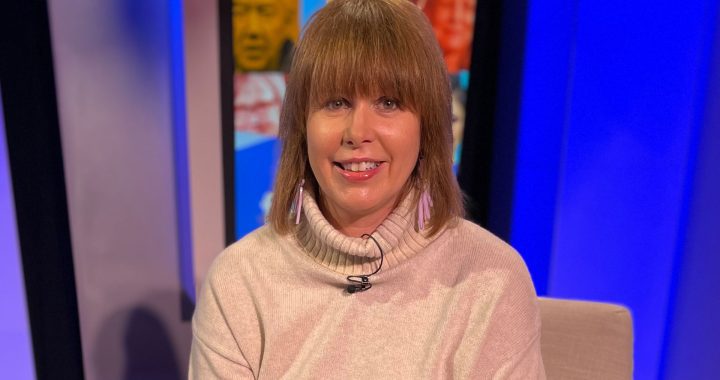
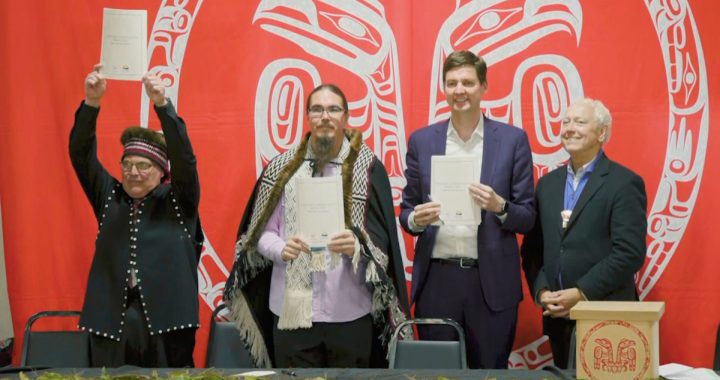
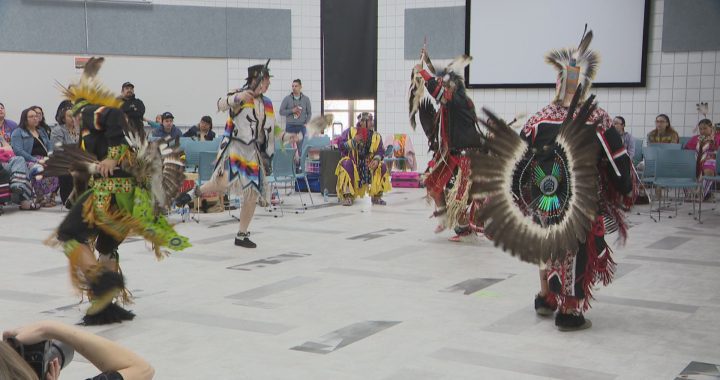
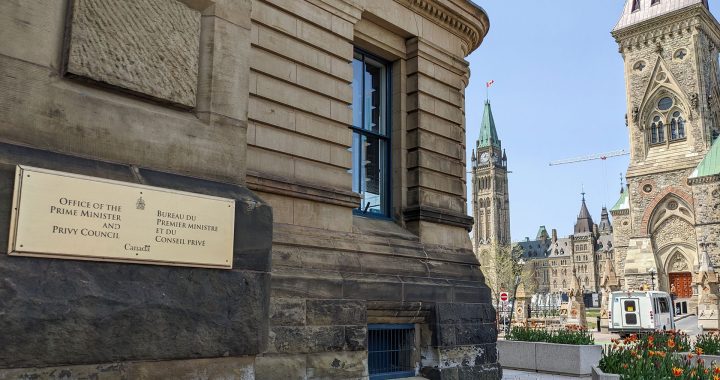
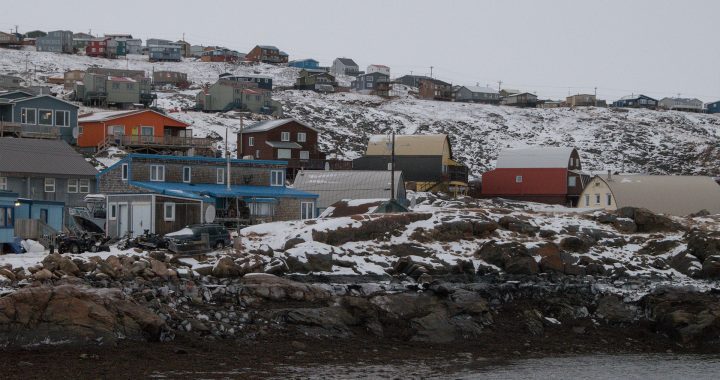
to Laurie and Tamara..thank you for a most introspective article that informs usaf the real issues behind the current protests and blockades..please keep everyone updated
Thank you
Jim Stewart
The UN should stop interfering in the business of countries. It is clear they do not know what they are talking about.
This is the first balanced reporting on the issue that I have seen, after weeks of arguing with people about the matter. and regularly searching for more information.
I read the article before I even looked at what the website was, as I was beginning to write this comment. Much of what had puzzled me made sense then.
Reading without having looked was a strange experience
. Each time that it seemed like the journalism was slanting one way or the other, a balancing point that did not contradict the other point but presented the other perspective would follow. I am used to seeing pretenses of unbiased coverage almost always being a set-up for a firm taking of sides.
The rest of the media outlets in Canada (and elsewhere) could learn well from this single piece of journalism.
In a sane world, it would not just be the media outlets looking for lessons from that general direction.
I have my own bias on the matter, that I won’t go over (and must now carefully re-examine, possibly going back to retract specific statements from heated arguments without yielding on larger points. Because this conflict also is gripping the nation that 300 years of my family have been born to under the Crown, I have a say in the debate that rages across the country.
It is my right of birth and choice of concern.
I do not have a right to a say on the internal affairs of any First Nation, Treaty or otherwise. I am entitled to my hopes, but that is all and a decisive victory by either side in this is actually a loss by the highest of those standards.
It would be good to see the Government of Canada and the province that encompasses the unceded territories of the West actually live up to their words about reconciliation.
It would be best if more of the people represented by those governments would try and understand why they should have a heartfelt need to have them be true, for their own sake as well as those who will be born here in the future.
The RCMP should not have acted on unceded land as they did for a commercial interest, unless asked to directly by the nation.
The determination of who would be empowered to speak that request on behalf of a nation divided; that is not something anyone outside of that nation could speak to.
Where does one begin in settling a conflict between the voices of tradition honouring their ancestral duty to protect the land, and the voices of those promoting what is needed for the welfare of the grandchildren of those ancestors on that land? The only ones who can understand that conflict are already in it, and it is in them.
I sincerely pray that as much as possible this affair can be settled first by the members of the clans and the nation who are at the center of the conflict, that failing that that it be settled by the first nations affected immediately by it,.
Failing that, it should still be settled by larger circles related as closely to the Wetsu’wet’en as possible. It is not good for outsiders to get involved in familly disputes.
If it cannot be resolved even with the BCUIC or the Assembly of First Nations, it is not acceptable for the Government of Canada to set any further precedent of the use of force upon segments of FIrst Nations on their land on behalf of the economic interests.
That prayer ends with what is to be hoped for the resolution of any conflict: If it is impossible to have everyone win, all that matters at the end of the day is that no one loses.
That hope extends to the people at the blockades everywhere, regardless of which side of them they may stand.
Thank you for excellent journalism.
A good article, interesting background, taken from both sides, thanks APTN!
I’d like to see a provincial survey done on the preferred relationship between the elected
councils and the hereditary chiefs, lets find out what the people want for their community.
There were no settlements in that area,nobuildings,camps etc until AFTER a public announcement took place approving pipeline THEN this Wetsuweten along with paid professionals protesters set up a base@ There is something about the land has to be settled to warrant a treaty claim that’s why!
Excellent journalism.Very balanced.
oh look selling out your heritage and morality for the almighty buck….accepting colonization…very sad
What would be really interesting to know, even though perhaps not my business, but what are the issues concerning the pipeline that the two sides have? The Hereditary Chiefs might say they take their stance because of “the toxic pollution, global warming, and the wrong direction for energy” – but what are the supporters saying? Is it just the jobs and money without concern for the climate catastrophe coming soon? Are they deniers? What about local pollution, Salmon streams – what is their thinking on this? Again, I apologize for being snoopy, it is their decision.
Well, duh!
Show me when a capitalist general manager has not been “excited” about a development project!
“Voting” is three children and their parents, voting on having ice cream for dinner.
The Hereditary Chiefs are the wise parents, gently informing their young charges that sugary foods lead to diabetes, heart disease, years of poor health, and an early death.
I think the Hereditary Chiefs are brilliantly filling their roles as the long-term protectors of their people and heritage.
But the “sugar high” from some temporary jobs is hard to resist if you’ve become addicted to sugar.
When the construction jobs have dried up, and reserve members all have brand new pickup trucks, then the remaining jobs go to highly educated white settler technocrats, the new pickup trucks rust into junk heaps, and the land and cultural sites are despoiled forever.
It’s both confusing and disheartening …
The Crown has eminent domain over all of Canada, it is only 41 & under that do not know this & or do not recognize it. Everything we own, accept hides is a product of oil & gas, none of us would give up everything! BRAD BLANDIONE MNA
Ruling gives RCMP mandate to enforce order related to Coastal GasLink project
Hereditary chiefs representing the First Nation’s five clans issued a press release denouncing the judge’s decision, pointing out that the land has never been ceded to the Canadian or B.C. governments.
indian act with RCMP can you change the original indian act… no or you become participants in POW camps
Can a monarchy run POW camps…? can she run RCMP enforcement officers on her property scams
you cant amend the indian act its evidence of what ???? by her courts and judges with agents to it aka attorneys
when you amend an act you agree that the original intent of property ownership by gunpoint by the queen to retain a profits…. you signed her agreement contract she did not sign yours….. you just declared property to handover in a treaty under the Indian act POW camp system…..
patent the land to what???? at gun point……your not part of a patent royalty rights the queen is…..
you retain a land ticket…..
What is TICKET?
In contracts. A slip of paper containing a certificate that the person to whom it is issued, or the holder, is entitled to some right or privilege therein mentioned or described; such, for example, are railroad tickets, theater tickets, pawn tickets.
And the queen grants the ticket ride to a… POW camp….a work camp….
I don`t like the fact that jobs afe offered and what jobs, welding, pumphouse moitoring, where are the jobs when implanted, what about long term reclaimation/cleanup? is there any fees imposed on this dangerous commodity coursing through the territories, any courses on clean up, what studies have been done as to clan up on land or waters, there is still oils all over where the EXXONVALDEZ WENT AGROUND. We like in an earth quake land and are due of the big one.As a retired millwright, all things have a life time expectancy, what are the warrenties?
After all this, I only hope that “The People” actually benefit from it. There have been many times where Native communities were promised by large companies, whether they were forestry or mining companies. In the end, the FN people were not given work, as promised, despite the required training they took for the work. Instead it was outsiders who benefitted. Even though I don’t support taking resources from the land that results in long-term destruction to many species, I only hope the people AT least benefit from it in a financial manner. Not be screwed over, once again.